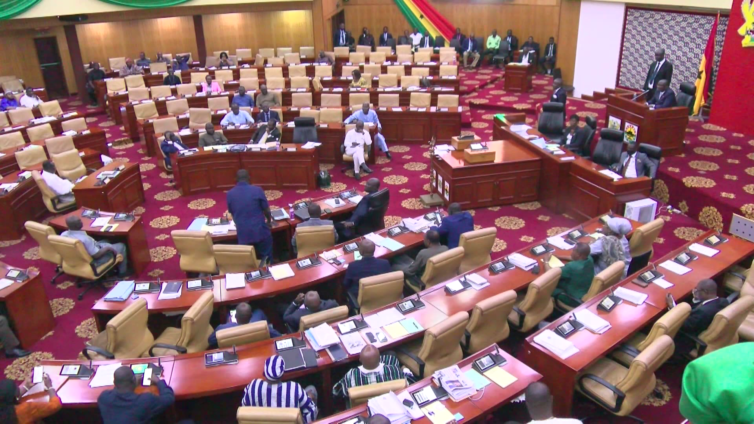A development economist has advised the government to tread cautiously in its bid to impose restrictions on the import of certain products.
Prof. Ebo Turkson insists that as the government works to finalize this controversial legislative instrument, many factors must be considered to avoid leaving negative repercussions on the country.
The associate professor made these comments on Joy FM's Super Morning Show on Wednesday, November 29, 2023.
“We should be careful we don't come up with something that is going to be costly to Ghana, and we'll have no potential benefits that we foresee, apart from the fact that those who have the licenses will make much more money and know what will happen if they make that money,” he said.
For him, the employment of adequate data in the roll-up process will be crucial in ensuring a well-targeted policy.
While admitting that the policy could accelerate demand for local goods, Prof Turkson does not believe it will be a walk in the park.
"I'm not saying we shouldn't restrict, but we should use better ways of doing this. And it should be informed by data. And it should be a gradual process of assessing the domestic production capacity, the demand, the shortfall, and how we restrict using, for instance, a central bank..." he added.
Already, six business associations have submitted a petition to Parliament urging the House to reject the bill proposed by the government through the Ministry of Trade and Industry.
The Joint Business Consultative Forum, comprising associations such as the Ghana Union of Traders Associations (GUTA), Food and Beverages Association of Ghana (FABAG), Importers and Exporters Association of Ghana, Ghana Institute of Freight Forwarders (GIFF), Chamber of Automobile Dealership Ghana (CADEG), and Ghana National Chamber of Commerce and Industry (GNCCI), argue that the bill if enacted, would have detrimental effects on their businesses.
The petition, dated Sunday, November 26, outlined concerns that the legislation could negatively impact the prices of goods, disrupt the free flow of goods, and potentially harm businesses.
Meanwhile, the President also expresses concerns about the absence of funding for farmers under the Planting for Food and Jobs program in the 2024 budget.
Find full list of 22 items considered for import restriction below:
- Rice
- Guts, bladders and stomach of animals
- Poultry
- Animal and Vegetable Oil
- Margarine
- Fruit Juices
- Soft Drink
- Mineral Water
- Noodles and Pasta
- Ceramic Tiles
- Corrugated Paper and Paper Board
- Mosquito Coil and Insecticides
- Soaps and Detergents
- Motor Cars
- Iron and Steel
- Cement
- Polymers (Plastics and Plastic Products)
- Fish
- Sugar
- Clothing and Apparel
- Biscuits
- Canned Tomatoes
Latest Stories
-
Police arrest Nigerian suspect in armed robbery attack at Avenor
5 minutes -
Volta NDC Chair: Mahama’s fast-track projects signal real change for the region
7 minutes -
Sakumono Ramsar site demolition Phase II met with fierce resistance from residents
7 minutes -
Blekusu Sea Defence Phase II: Council of State rep says project marks turning point for Volta’s coastline
12 minutes -
CARISCA 2025 reimagines Africa’s supply chains for sustainability
21 minutes -
Ejisu MP calls on government to fix bad roads
25 minutes -
Police foil armed robbery attempt in Accra, two suspects killed
40 minutes -
Northern Regional PURC reports impressive achievements in mid-year report
42 minutes -
Parliament passes Ghana Medical Trust Fund Bill
56 minutes -
Chinese firms explore opportunities under Ghana’s 24- Hour Economy programme
1 hour -
Dr Zanetor Agyeman-Rawlings joins Ghana’s delegation to Pan African Parliament
1 hour -
Forum in Mali sparks debate on Africa’s historical claims for reparations
1 hour -
Northern Region: PURC resolves consumer utility concerns with innovative outreach programmes
1 hour -
Ghana likely to end 2025 with inflation rate in single digit – Deloitte
1 hour -
German Development Cooperation marks milestone in boosting digital job prospects for Ghanaian youth
1 hour

